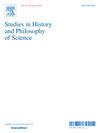嵌入式生态:整合当地专业知识的伙伴关系飞轮
IF 1.8
2区 哲学
Q1 HISTORY & PHILOSOPHY OF SCIENCE
引用次数: 0
摘要
越来越多的人呼吁将当地的专业知识更好地整合到科学研究和基于证据的政策制定中,尤其是在气候变化等紧迫问题上。更好地让当地社区参与这些知识产生过程,在认知和伦理上都有好处。在这里,我们提出了一个整合当地社区专业知识的社区科学过程模型,该模型是通过对Galápagos群岛社区科学努力的实地分析而开发的。我们称这种合作为“嵌入式生态”。嵌入式生态的过程由我们所说的伙伴关系飞轮来模拟,它包括构思、计划、实施和学习的阶段。外部从业者和当地社区之间持续合作的重要性不能被夸大,这是飞轮迭代的一个原因,允许将焦点放在持续的项目生成和改进上。在讨论了伙伴关系飞轮过程模型的实际元素之后,我们认为,它的简单性和可复制性对于任何旨在改善社区科学本地专业知识整合的过程模型都是必不可少的,从而解决该领域当前和持久的挑战。总之,我们提出并探索了一个新的社区科学过程模型,从而推进了参与性研究理论的最新文献。本文章由计算机程序翻译,如有差异,请以英文原文为准。
Embedded Ecology: The Partnership Flywheel for integrating local expertise
There have been increasing calls to improve the integration of local expertise into both scientific research and evidence-based policy development, especially for urgent problems like climate change. There are both epistemic and ethical benefits of better involving local communities in these knowledge-generating processes. Here we present a community science process model for integrating the expertise of local communities, developed through field analysis of a community science endeavor in the Galápagos Islands. We call this kind of collaboration “embedded ecology.” The process of embedded ecology is modeled by what we call the Partnership Flywheel, which includes phases for ideation, planning, implementation, and learning. The importance of sustained collaboration between external practitioners and a local community cannot be overstated, which is one reason the flywheel is iterative, allowing the focus to be on sustained project generation and improvement. After discussing the practical elements of the Partnership Flywheel process model, we argue that its simplicity and replicability are essential for any process model aimed at improving the integration of local expertise in community science, thereby addressing both current and enduring challenges in the field. In sum, we present and explore a new community science process model thus advancing a recently growing literature on the theory of participatory research.
求助全文
通过发布文献求助,成功后即可免费获取论文全文。
去求助
来源期刊

Studies in History and Philosophy of Science
管理科学-科学史与科学哲学
CiteScore
2.50
自引率
10.00%
发文量
166
审稿时长
6.6 weeks
期刊介绍:
Studies in History and Philosophy of Science is devoted to the integrated study of the history, philosophy and sociology of the sciences. The editors encourage contributions both in the long-established areas of the history of the sciences and the philosophy of the sciences and in the topical areas of historiography of the sciences, the sciences in relation to gender, culture and society and the sciences in relation to arts. The Journal is international in scope and content and publishes papers from a wide range of countries and cultural traditions.
 求助内容:
求助内容: 应助结果提醒方式:
应助结果提醒方式:


